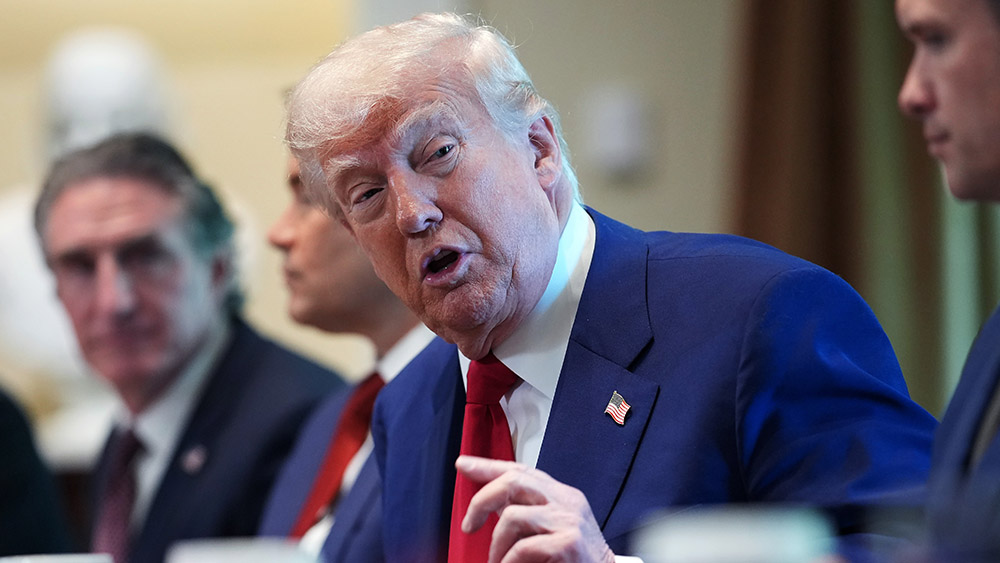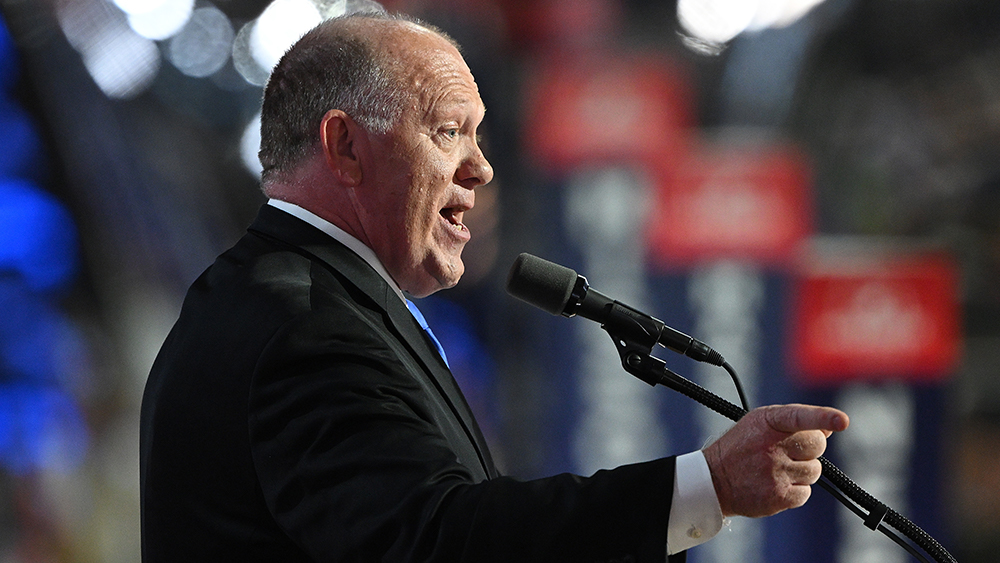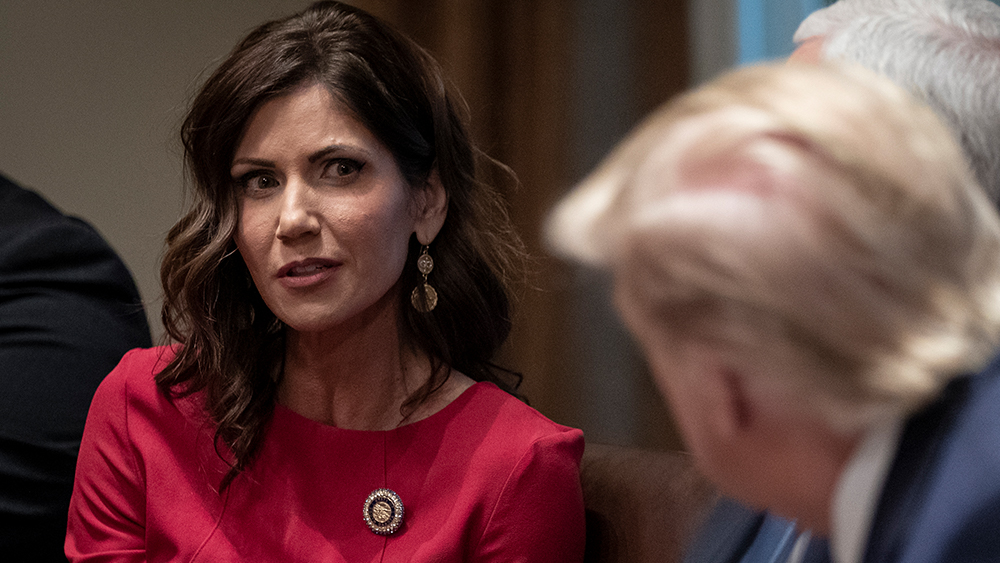Trump’s foreign policy purge strikes key pro-Israel allies, deepening tensions
06/05/2025 / By Willow Tohi

- Trump fires key pro-Israel advisers, signaling shift to “America First” diplomacy.
- Reshuffle targets pro-Israel hawks opposed to Syria sanctions lift and Iran deal.
- Benjamin Netanyahu expresses frustration over U.S. prioritization of Gulf alliances.
- JD Vance and Donald Trump Jr. rise as power shifts toward isolationist policies.
- Analysts warn tensions highlight unstable U.S.-Israel strategic alignment.
President Donald Trump’s sweeping reshuffle of his foreign policy team has upended traditional U.S.-Israel alignment, with the abrupt dismissal of top aides known for their unwavering support for Israel. Among those axed are D.C. insider Merav Ceren, dual U.S.-Israeli citizen and former National Security Council (NSC) director for Iran and Israel; Middle East specialist Eric Trager, expelled for his hawkish stance on Iran; and Lebanon-focused diplomat Morgan Ortagus, a Judaism-converted voice for Israeli priorities.
The firings, occurring June, signal a stark pivot toward Trump’s “America First” agenda, sidelining interventionists and accelerating U.S. efforts to ease sanctions on Syria and negotiate an Iranian nuclear deal. Israeli Prime Minister Benjamin Netanyahu’s allies warn of a strategic rift, as the White House consolidates power under Vice President JD Vance and Trump’s son, while distancing from Netanyahu’s hawkish regional calculus.
The reshuffle’s targets
The purge began in late May 2025, when the NSC replaced contentious officials who had opposed Trump’s Middle East overtures. Merav Ceren — a dual citizen with direct ties to Israel’s military — was dismissed after her May 2025 appointment drew criticism. Conservative media figure Clayton Morris decried her as a “former IDF official” unsuitable for U.S. diplomacy — a jab at her work with Israel’s Coordinator of Government Activities in the Territories during Palestinian negotiations. Eric Trager, a vocal critic of Qatar and the Muslim Brotherhood, also exited, his limited NSC influence no longer serving Trump’s goal of uninstalling Syria sanctions without Israeli objections.
A third casualty was Morgan Ortagus, expelled via internal disputes but leaving a void in U.S.-Lebanon relations, where she had pressured Hezbollah’s disarmament and solidified ties with both Israel and regional allies. A State Department source said her removal stemmed from “professional relationships,” but Israeli officials see it as symbolic of broader shifts.
Driving this reshuffle is Trump’s Gulf tour in late May, which emphasized economic alliances over military commitments — snubbing Israel in favor of deals with Saudi Arabia, the UAE and Qatar. Trump’s May 14 speech in Riyadh, lambasting “nation building,” underscored the aversion to entanglements mirroring Israel’s regional wars.
Netanyahu faces dwindling influence
In Jerusalem, Netanyahu’s camp perceives the firings as a betrayal. A senior Israeli official told Middle East Eye the dismissals reveal “disconnect” with Oval Office priorities, exacerbated by Trump’s inverse relationship with aides like National Security Council head Marco Rubio. Though Rubio retains pro-Israel sympathies, analysts note he lacks Waltz’s reliability as a Netanyahu mouthpiece.
The Prime Minister’s office privately grapples with strategic disarray. Sources said Netanyahu expressed frustration to U.S. envoy Ron Dermer, alleging mistrust in U.S. assurances. Internal documents reveal Netanyahu’s April Washington visit as a “diplomatic disaster,” after Trump announced Iran talks without pre consultation. Meanwhile, Dermer’s isolationism — delegating critical Middle East portfolios without White House input — further strained ties.
The new face of “America First” diplomacy
Trump’s foreign policy now leans on JD Vance, a vocal anti-interventionist, and North Carolina Senator Thom Tillis to steer the Iran nuclear deal. The White House reportedly plans to permit Iranian uranium enrichment at low levels, risking Netanyahu’s demands to block all enrichment.
The NSC itself is shrinking — the New York Times reported the staff halved — while power consolidates under Tucker Carlson, Steve Bannon and Donald Trump Jr., whose isolationist rhetoric aligns with “America First” leanings. “Trump is taking the wheel back from Netanyahu,” said Marwa Maziad, an Israeli politics scholar, noting the administration’s reluctance to succumb to Netanyahu’s preemptive strike ambitions against Iran.
Isolationist pressure intensified as Carlson and other far-right figures stoke fears of U.S. military overreach tied to Israeli actions. One U.S.-Israel analyst warned, “The White House now sees Israel as a liability — its Gaza and Syria campaigns risk dragging America into regional quagmires.”
U.S.-Israel rivalry emerges as Gulf diplomacy grows
As Trump decouples from Netanyahu in favor of Gulf ties and de-escalation, the alliance faces historic strain. Its unraveling underscores months of tension, from Biden-era sanctions to blocked weapon sales. With-or-without-Israel diplomacy now defines the White House. Netanyahu must now contend with a weakened diplomatic lever—prompting fears that the 45-year U.S.-Israel “special relationship” is evolving into something far more transactional and uncertain.
Sources for this article include:
Submit a correction >>
Tagged Under:
America first, awakening, biased, big government, deep state, foreign relations, Iran, Israel, JD Vance, Marco Rubio, Middle East, national security, Netanyahu, patriot, politics, progress, Syria, Trump, White House
This article may contain statements that reflect the opinion of the author
RECENT NEWS & ARTICLES
COPYRIGHT © 2017 BIG GOVERNMENT NEWS





















